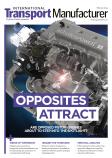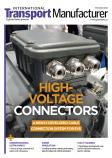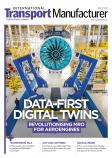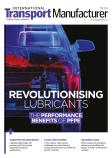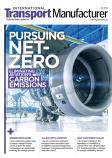Advancing megawatt charging for heavy commercial vehicles.
Charging battery-powered commercial vehicles, especially long-haul trucks, presents an enduring challenge. These vehicles demand substantial energy for their long-distance journeys and cannot afford extended charging periods. In collaboration with industry leaders, the Charging Interface Initiative e.V. (CharIN) has developed the Megawatt Charging System (MCS) standard, aiming to establish consistent global standards for this vehicle class. Stäubli, a leader in electric mobility, is playing a pivotal role in this initiative.
Two key technologies are propelling the widespread acceptance of battery-electric commercial vehicles: extended range and reduced charging times. Drawing from CharIN specifications, Stäubli has pioneered a cutting-edge MCS charging system boasting a charging capacity of 4.5 megawatts. This innovation marks a significant leap forward in charging heavy commercial vehicles.
The company’s charging solution prioritises durability and user-friendliness. Equipped with a liquid-cooled cable and larger conductor cross-sections, it enables quicker charging times and maximises flexibility. With its impressive charging capacity of up to 4.5MW, a rated current of up to 3000A, and 1500 volts, the Stäubli MCS effectively tackles the challenges associated with charging commercial vehicles. To manage the heat generated by higher power levels, Stäubli has developed thermal simulation models.
SECURE AND ADAPTABLE CHARGING SYSTEM
Stäubli’s electrical connectors have been designed to efficiently and safely meet all requirements imposed on electric vehicles (EVs), even in challenging environmental conditions, while ensuring a long service life. These connectors are known for their compact design, easy maintenance, resistance to vibration and shock, and they ensure a permanent electrical connection through patented Multilam contact technology.
The Stäubli charging plug comprise two parts: the MCS Interface, which is a charging plug with a cable for the infrastructure side, and the MCS Inlet, for the vehicle connection that can be tailored to meet customer requirements. The Stäubli MCS system significantly improves the output of existing combined charging systems (CCS).
The key product features of the Stäubli charging plug include power up to 4.5MW with a rated current of up to 3000A and a customisable inlet according to customer specifications. The plug features Stäubli’s proven MULTILAM contact technology, integrated security features and is compliant with IEC 62196-1, IEC 62196-3 and PD IEC/TS 63379 standards. The availability of 1500V prototypes has begun, will full market launch concurrent with standardisation.
In particular for the heavy duty sector, Stäubli places a strong emphasis on ensuring both robust power transmission and exceptional resistance to vibrations. Drawing from its extensive experience in high-voltage projects, Stäubli underscores its commitment to delivering the optimal solution to customers.
CUSTOMISED MCS INLET
The final standardisation of the MCS by CharIN is not anticipated until at least 2025. Until then, numerous companies will continue to develop their own charging solutions. Stäubli offers functional samples of its MCS charging connector, enabling customers to conduct tests while awaiting the availability of IEC and SAE standards. The working prototype of the MCS Inlet is now accessible in a version that supports up to 1500A. It can be customised based on the specific requirements and quantity needed by the customer. Stäubli provides the inlet in two options: one with a crimp connection for cables up to 300mm2, and another as a busbar version.
CUSTOMISATION THROUGH COLLABORATION
The development of tailored solutions in partnership with customers, often referred to as ‘Engineering to Order,’ stands as a core competence of Stäubli. The company’s primary emphasis lies in developing the best possible vehicle-integrated solutions for its customers while maintaining uncompromising standards. In this regard, the company identifies itself as a specialist in engineering customised solutions.
MCS prototypes featuring a rated current of 1500V are currently accessible for testing and integration into customer products. The official market launch will coincide with standardisation. Future versions of the charging plug will offer various power levels, with the plug itself remaining unaltered while only the back side of power contacts and cable cross section are adjusted. Stäubli’s roadmap also encompasses LED integration and smart inlet technologies.
VERSATILE USE OF MCS CHARGING PLUG
The robust Stäubli MCS Connector can accommodate a wide spectrum of heavy-duty vehicles. While the CharIN standard chiefly targets class 6, 7 and 8 commercial vehicles such as trucks, construction, and agricultural vehicles, the MCS connector is equally suitable for buses, ships, aircraft and other large battery electric vehicles (BEVs).
ELECTRIC REVOLUTION
Trucks currently contribute to a quarter of greenhouse gas emissions in Europe’s transportation sector, despite accounting for only 2% of all vehicles on the road. Recent developments, including the declining cost of battery packs and enhanced efficiency, are propelling the adoption of battery-powered electric trucks. The final adoption of the MCS standard is expected to further accelerate this momentum. With pioneering charging solutions like Stäubli’s MCS, heavy-duty commercial vehicles are poised for a promising future marked by manageable costs and high reliability. Experts anticipate this trend to persist, promising an environmentally friendly and sustainable revolution in the commercial vehicle sector.







